Everyone loves berries berry much! Other than the commonly available strawberries and blueberries, there are some equally delicious berries that you might be missing.
Berries are not only beautiful little fruits but they also provide an unlimited amount of nutrients.
You’re probably used to seeing berries on bushes, but did you know some varieties grow on trees as well? These fruit trees not only give you berries, but they attract many songbirds too.
So if you are thinking of having a small garden on your land, berry trees are a great choice. Let’s have a look at the 9 edible berries that grow on trees.
1. Juniper Berries
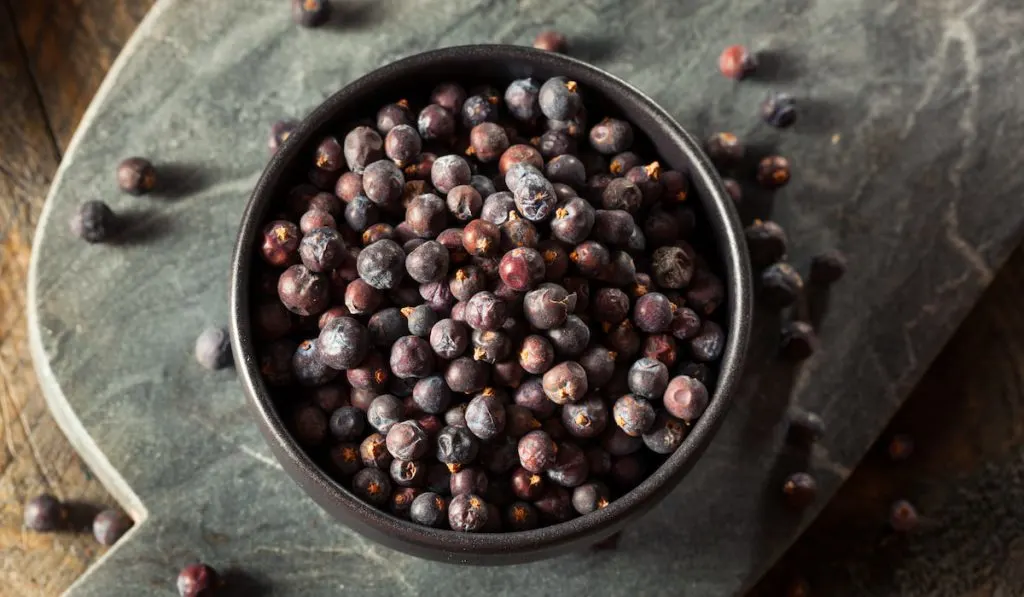
The juniper tree, Juniperus communis, produces seed cones that are known as juniper berries.
They are mostly deep blue with a strong woody or spicy aroma. Their sharp flavor makes them perfect for use as a spice or flavoring agent.
Juniper berries are very nutritious as well. They are a great source of vitamin C that keeps your immune system strong and the volatile oils they contain act as anti-inflammatory and anti-cancer agents.
The flavonoid antioxidants they contain promote good health and help prevent neurodegenerative diseases.
2. Elderberries
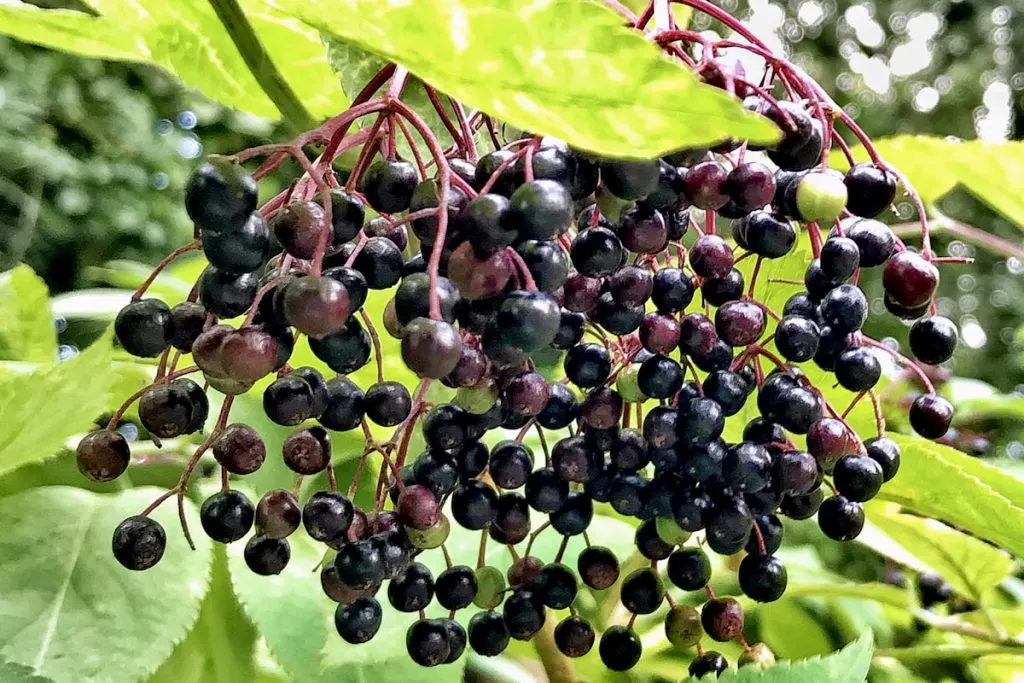
The most commonly consumed variety of elderberries is the Sambucus nigra L. ssp. canadensis variety.
Elderberries trees grow best in moist and slightly acidic soil. The fruit has a tart and tangy taste, which makes it perfect for making juices, jams, and wine. It is better to cook the berries in inactive alkaloids to avoid nausea if eaten raw.
Just like other berries, elderberries are also a great source of vitamin C, which plays a very vital role in keeping your immune system strong.
They are rich in vitamin B6 as well, which together with vitamin C helps you fight various diseases.
3. Mulberries
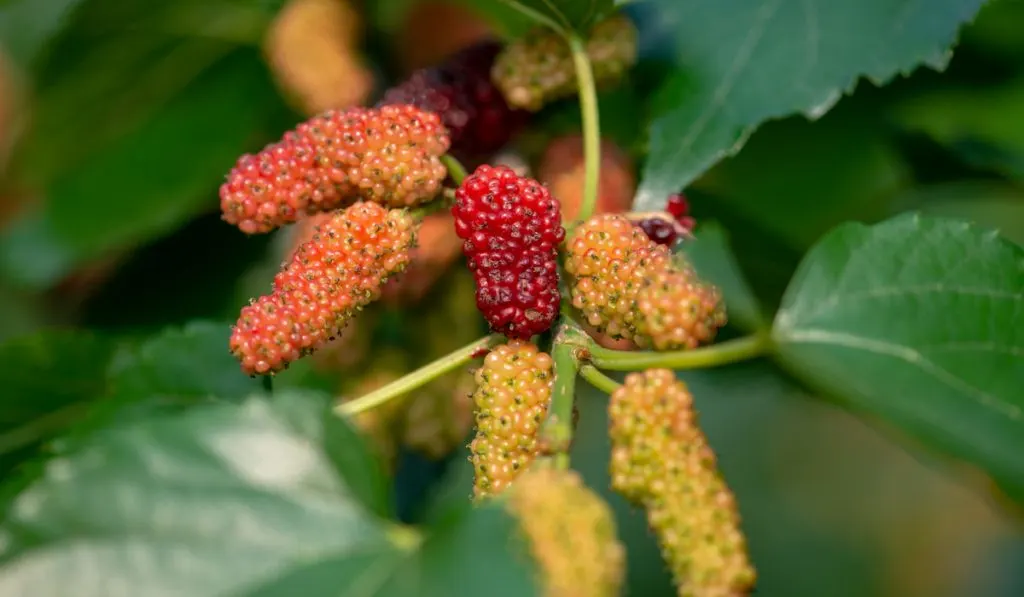
Belonging to the Moraceae family, mulberries are multiple fruits meaning growing in clusters.
They are usually dark purple or black. They are very sweet and best to pair up with pies or herbal teas.
Coming to health benefits, mulberries have a long list to read. They have copious amounts of vitamin C and B. Along with potassium and magnesium, the vitamins keep your body balanced.
Mulberries also contain anthocyanins that are natural antioxidants. All these nutrients are important for your body’s growth, development, and new cell production. They also help in weight loss and fighting cancer.
4. Acai Berries

The grapelike fruit, acai berry is native to the rainforests of South America. These are small, black-colored berries.
Acai berries have tons of benefits. To start, they are a rich source of antioxidants, needed for a strong immune system. They are also helpful for arthritis, high cholesterol, skin appearance, and detoxification.
Also a good source of fiber, acai berries will keep your gut strong. Due to all these benefits acai berries are known as a superfood. They also help prevent brain disorders like Alzheimer’s disease and Parkinson’s disease.
From your brain to the heart, acai berries are excellent for your health.
5. Huckleberries
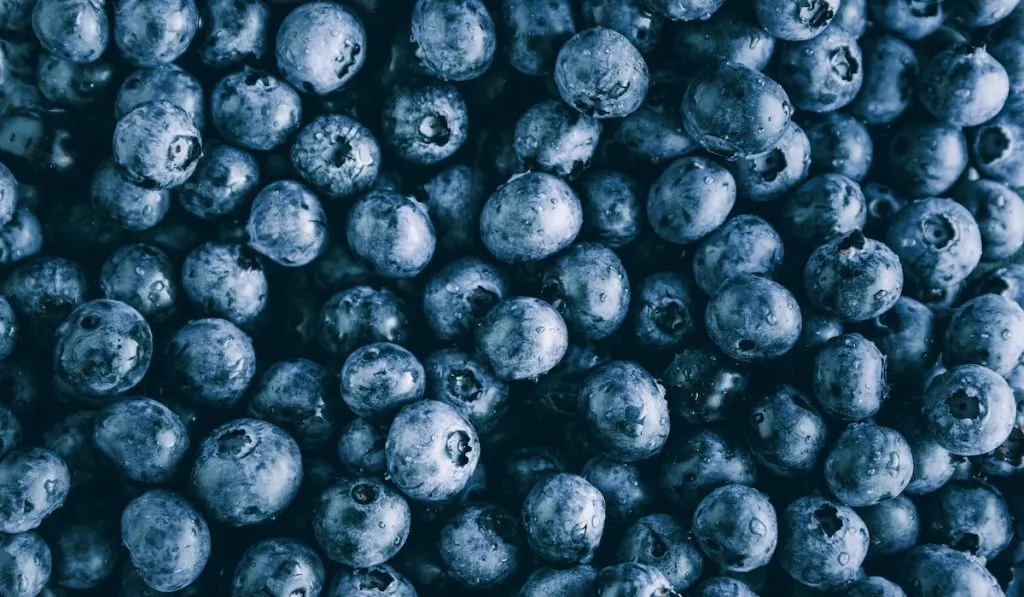
Also known as farkleberry, Huckleberry grows best in acidic, sandy soil. These small, red, blue, or black colored berries grow in mountainous regions. Their taste is more towards the sweeter side with a little bit of tartness.
Though eaten fresh, huckleberries are also used to make delicious sweets like puddings, candies, jams, and beverages.
Just like their sister blueberries, huckleberries are also rich in vitamins and antioxidants. These antioxidants are going to protect your body against conditions related to high blood sugar and cholesterol levels.
They also keep your memory sharp and reduce the risk of tumor formation.
6. Strawberry Tree Berries
This one is a berry looking quite similar to the strawberry from where it gets its name Strawberry Tree Berry.
This evergreen tree is native to the Mediterranean and western region of Europe. This edible fruit is food for humans, birds, and insects. It is used to make different jams and beverages.
In Europe, it is also used as feed given to bees in honey production. High in antioxidants, vitamins, and organic acids, strawberry tree berries are healthier than many fruits. They are also used in herbal medicine for treating hypertension and diabetes.
7. Canada Buffaloberries
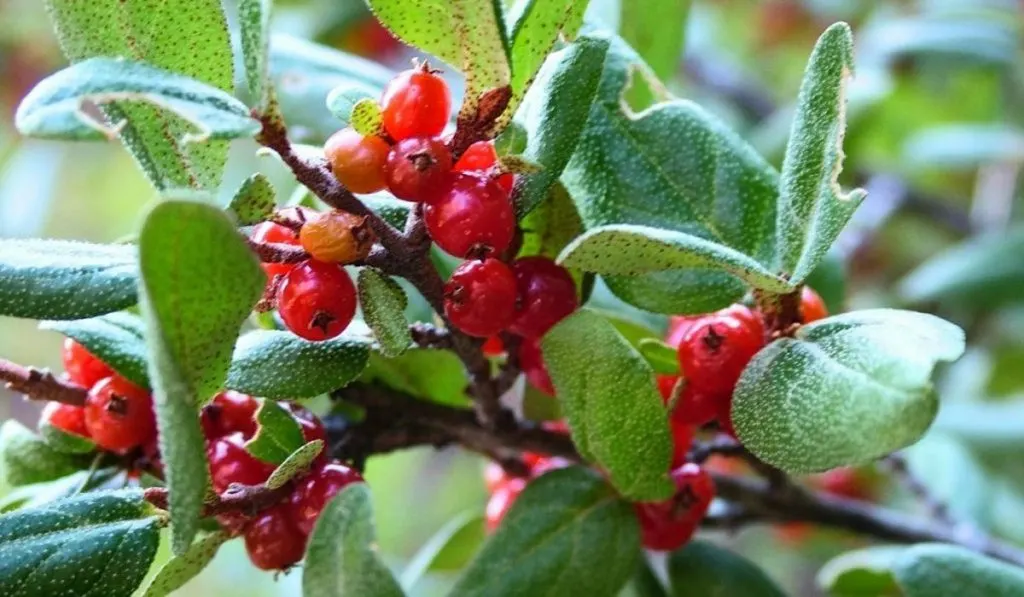
Silver buffaloberry (Shepherdia argentea) the most common species comes with green leaves covered pale-yellow flowers.
The berries are dark red in color and rough in texture. Fresh ones can be quite bitter so cooking them is the best option. These make some delicious jams, jellies, and syrups.
Its red characteristic color comes from the antioxidant, lycopene which is linked to numerous health benefits. These include reduced risk of cancers, cataracts, and heart diseases.
Buffaloberries are also used to make medicines. They are commonly used to treat tuberculosis, constipation, arthritis, cuts, sours, and swelling.
8. Rowan Berries

An unusual member of the family Rosaceae, Rowan Berries (Sorbus aucuparia) are beautiful small, acidic fruits. These grow on the rowan or commonly known as mountain-ash trees from where they get their name.
These berries are used to make alcoholic beverages or liqueurs. They can also be cooked into jams and jellies.
It is better to eat these when cooked to convert the harmful parasorbic acid into beneficial sorbic acid.
Rowan berries find many uses in traditional medicine. They are extremely effective in promoting respiratory and digestive health. These berries also help in preventing the production of free radicals due to which they are considered anti-cancerous.
9. Hawthorn Berries
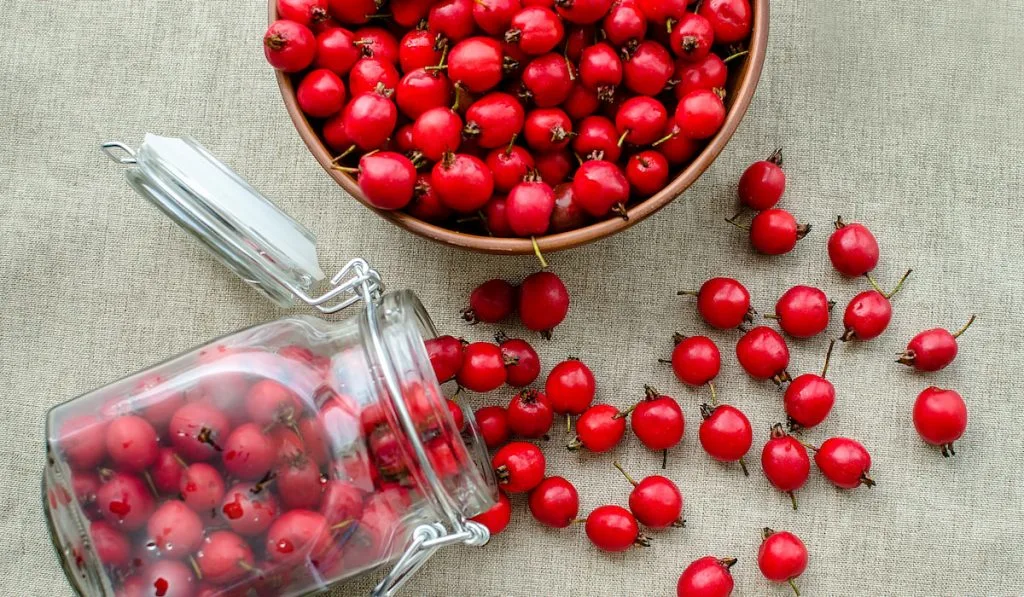
These deep red to black Hawthorn berries grow on trees belonging to the Crataegus genus. Not being too sweet, they have a tart, tangy taste.
Loaded with nutrients, hawthorn berries can improve your health in many different ways. Antioxidants will help neutralize free radicals and prevent certain cancers.
These berries also help lower blood pressure that makes them favorable for hypertension patients.
Hawthorn berries also have anti-inflammatory properties. This helps prevent conditions like diabetes type 2, cancers and asthma. They are also helpful in decreasing elevated cholesterol levels, specifically triglycerides.
